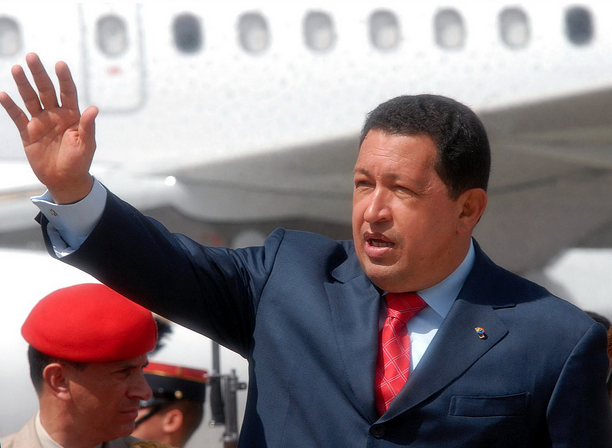Despite a two-year battle with cancer and a conspicuously long absence from the public eye, the death of Venezuelan President Hugo Chavez last week still came as a shock. Always a polarizing figure, the debate about how to define him — as a demagogical dictator or as a revolutionary — was renewed with his passing. The answer, however, isn’t so black and white.
After leading a failed coup in 1992 and spending two years in jail, Chavez won his first election in 1998 with an astonishing approval rating of 80 per cent. This would dramatically decline over the next four years, however, in reaction to his early heavy-handed governance. He rewrote the constitution, giving the president control over all three branches of government, the right to rule by decree and the right to rule in perpetuity when claiming two-thirds of the vote.
According to Human Rights Watch, Chavez consolidated power within the Supreme Court by appointing justices who supported his mandate and punished others, effectively curtailing any check on presidential power. Media that offended the government or served to “ferment anxiety in the public,” were harshly reprimanded. Members of both the press and the judicial system were victims of unlawful arrest and detention.
Obviously repressive in defense of his regime, Chavez did leave Venezuela better off than he found it in some ways. The Guardian’s Datablog shows extreme poverty was reduced from 23 per cent to eight per cent and unemployment halved to just over seven per cent. Gross domestic product per capita and agricultural output both increased. The worst failure of Chavez was one he admitted to — crime. The country boasts the ugly prize of the highest violent crime rate in South America.
Records aside, the prevailing image of Chavez the dictator was mostly earned from his open rejection of the ruling ideology. A devout socialist, he decried capitalism as “the way of the devil and exploitation.” Coming from a poor background, the plight of the proletariat was always part of his campaigns and policies. Outside the country, he refused free trade agreements with the United States, opting instead for Latin American organizations, Mercosur and ALBA.
In 2008, Chavez handed Barack Obama a copy of Eduardo Galeano’s Open Veins of Latin America, a chronicle of U.S.-backed insurgency throughout Latin America. By that point, Chavez was clearly aware that his policies of land expropriation, resource nationalization and social programs for the poor were exactly what had antagonized American interventions throughout Central and South America previously.
Indeed, an updated version of Galeano’s book would have to feature Chavez himself. After a 2002 coup attempt that at first seemed internal, The Observer revealed it had been orchestrated by the Bush administration with the help of the same people who had been involved in the Reagan-era insurgencies in Central America. Chavez was considered a problem that needed to be rectified, a man who was sewing ideas that America refused to swallow in the new millennium, just as they refused before.
Though that was over a decade ago, the dominant sentiment still remains. Time magazine’s Tim Padgett provided just such an example in his Chavez retrospective, describing a leader who was “reckless and arrogant,” “a vulgar populist” and a “blowhard.” Petty name-calling aside, his most accurate sentence was this: “history isn’t likely to remember Chavez as fondly as his followers will.”
And that is exactly the point. What America or the rest of the world thought of Chavez is ultimately irrelevant. In fact, Chavez turned his attempted vilification into a battle of Biblical proportions — he became the little guy fighting the good fight against the American boogie man that had forcibly impressed itself on the autonomous nations of Latin America for decades.
Tens of thousands of Venezuelans flooded the streets to commemorate not just the death of a man, but the death of a larger than life symbol of defiance against the dominant powers that so often win without even facing a battle.
– – – – –
Article corrected on 14/03/2013
